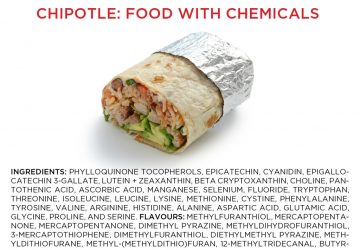 The Wall Street Journal provided a breath of fresh air yesterday for those of us optimistic about the future of food technology. A columnist noted a recent, scientifically inadequate study hostile to crop biotechnology that was released to wide media coverage, and used it to make an important point: New, promising technology is often stalled by the media’s adoption of the “precautionary principle” in deciding what is newsworthy. (We’ve covered how media newsworthiness decisions lead to a misinformed public before.)
The Wall Street Journal provided a breath of fresh air yesterday for those of us optimistic about the future of food technology. A columnist noted a recent, scientifically inadequate study hostile to crop biotechnology that was released to wide media coverage, and used it to make an important point: New, promising technology is often stalled by the media’s adoption of the “precautionary principle” in deciding what is newsworthy. (We’ve covered how media newsworthiness decisions lead to a misinformed public before.)
The author compares coverage of the widely rejected— including by the European Food Safety Authority —study linking biotech crops to health harms in rats with coverage of biotechnology’s benefits to the environment. Didn’t hear about the latter? According to one study, the carbon dioxide emission savings from using biotech crops are equivalent to taking over 8 million cars off the road. Yet media coverage of biotechnology seems to be defined by the principle, “Always look on the dark side of life” (or, “if it bleeds, it leads”).
We’ve been saying this about many issues for some time. Consider diet soda, which offers people the taste of soda without the calories. While most people would think making the switch is a net positive, media coverage often includes precautionary principle allusions to possible, unproven health harms. After a National Cancer Institute study found “no evidence” that the sweeteners in diet soda posed a measurable risk, the Center for Science in the Public Interest resorted to promoting a rat study to keep the “precautionary” argument alive.
Even “good” foods, like fruits and vegetables, periodically face this sort of coverage. The Environmental Working Group (EWG) releases an annual report purporting to call out a “dirty dozen” of produce for supposedly having too much pesticide residue. After EWG had gobbled up the predictable media coverage, University of California-Davis scientists put the “dirty dozen” to the test and found “exposures to the most commonly detected pesticides on the twelve commodities pose negligible risks to consumers.” For good measure, their findings indicated that eating organic instead of conventional produce, as EWG recommended, would not create “any measurable consumer health benefit.”




